Family planning remains an integral component of achieving Universal Health Coverage (UHC). In Nigeria, challenges with Family Planning (FP) and Maternal, Newborn, and Child Health (MNCH) services are visible, as shown by high out-of-pocket costs, reduced government funding, uneven support for public facilities in commodities distribution, and passive procurement methods.
These concerns pose a threat to sustainability, contributing to suboptimal health indices. Addressing these challenges requires innovative solutions. Transitioning to a more sustainable approach, such as including contraception into insurance scheme health benefits, helps reduce financial risks, limit service competition, and ensure sufficient supply of essential services such as family planning and MNCH services. This shift toward integration within universal health coverage systems not only increases financial stability, but it also promotes better and healthier lifestyle choices and strengthens the healthcare system.
This was the subject of the convening organised by Health Systems Consult Limited (HSCL) to share the findings from the Nigeria State-Led Strategic Purchasing for Family Planning and Maternal, Newborn, and Child Health (SP4FP-MNCH) initiative. The event served as a platform to highlight the joint efforts and commitment by the various stakeholder groups, as well as to reflect on the project’s achievements over the course of five years (2018- 2024).
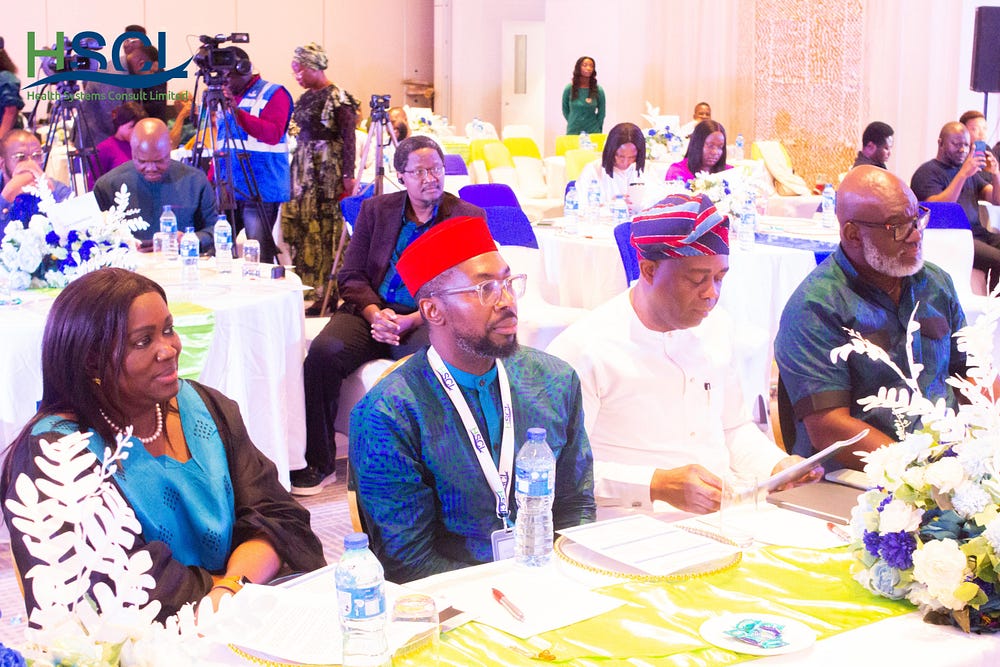
Representatives from the Bill & Melinda Gates Foundation, the Director General of the Nigeria Health Insurance Authority, Commissioners for Health from Lagos and Bauchi States, representatives of donor and implementation partners, Civil Society Organisations, project beneficiaries, key figures from both health and non-health sectors, and various other distinguished guests attended the project’s closeout.
“Given Nigeria’s persistent poor maternal, infant, and under 5 mortality indices (1,047 per 100,000 live births and 117 deaths per 1,000 live births respectively), family planning holds undeniable importance in enhancing health outcomes. I am delighted to share the attainment of significant milestones in this endeavour, including a 14% increase in the uptake of FP services and a 4% overall increase in the utilisation of MNCH services, a reduction in out-of-pocket spending by Lagos state residents by 14%. -Madame Rodio Diallo Senior Program Officer, Country Impact and Program Planning, BMGF while delivering her keynote address at the project close-out event.

Ensuring sub-national access
Health insurance coverage is an important predictor of family planning services, however, ensuring health insurance coverage at the subnational level is critical. This was a key highlight of the panel session on State-led health insurance and the Sector Wide Approach (SWAp) Implementation: Implication and Opportunities for UHC.
Health poverty is a major issue in our communities, especially for those in the very fragile middle class, and the principles of strategic purchasing applied in the SP4FP/MNCH project helps to alleviate this. This project has enhanced access to vulnerable populations by promoting universal health coverage. Dr. Kelechi Ohiri, DG/CEO, NHIA
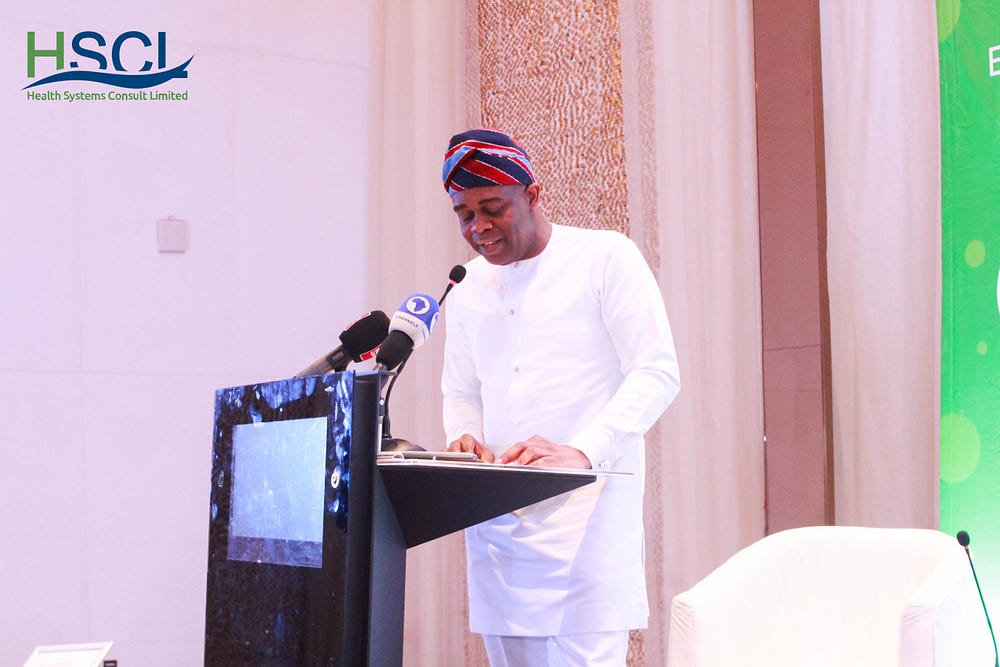
Unpacking five years of design and implementation
The SP4FP-MNCH project is a collaborative effort funded by the Bill & Melinda Gates Foundation to improve access to essential healthcare services in Lagos State, Nigeria. The project are to:
- Strengthen strategic purchasing functions within the Lagos State Health Insurance Scheme (LSHIS).
- Integrate Family Planning (FP), Maternal, Newborn, and Child Health (MNCH) services into the LSHIS benefit package.
- Increase participation in the LSHIS by both formal and informal sector enrollees.
- Enhance research capacity to inform future policy and practice decisions.
Critical component of this project include developing and implementing a robust system for purchasing healthcare services from public and private providers; negotiating service prices and contracts with healthcare providers based on quality and efficiency; expanding the LSHIS benefit package to include essential FP, MNCH, and potentially other vertical health services (like HIV/TB programme; and conducting targeted outreach campaigns to raise awareness and encourage enrollment in the LSHIS. This is particularly true in the informal sector, as well as research activities aimed at assessing the project’s effectiveness and informing future healthcare financing strategies.
HSCL coordinated and implemented the Maternal, Newborn and Child Health Project (SP4FP-MNCH) in Lagos State, which was funded by the Bill & Melinda Gates Foundation . Technical assistance was provided to Bauchi and Yobe States to help the operationalisation of their respective health insurance schemes. This support was provided by a consortium that included Insight Health Consulting (IHC), the Centre for Communication and Social Impact (CCSI), and the Health Policy Research Group (HPRG) at the University of Nigeria.
The SP4FP-MNCH Project, used actuarial studies as an agile method to procurement and allocation. It increased value and improved outcomes by building capacity for strategic purchasing at the state level, with Lagos State being the primary focus. The SP4FP-MNCH project also used a participatory methodology, which includes co-design and implementation to determine the scope, additional benefits to consider, and purposive sampling of data sources.
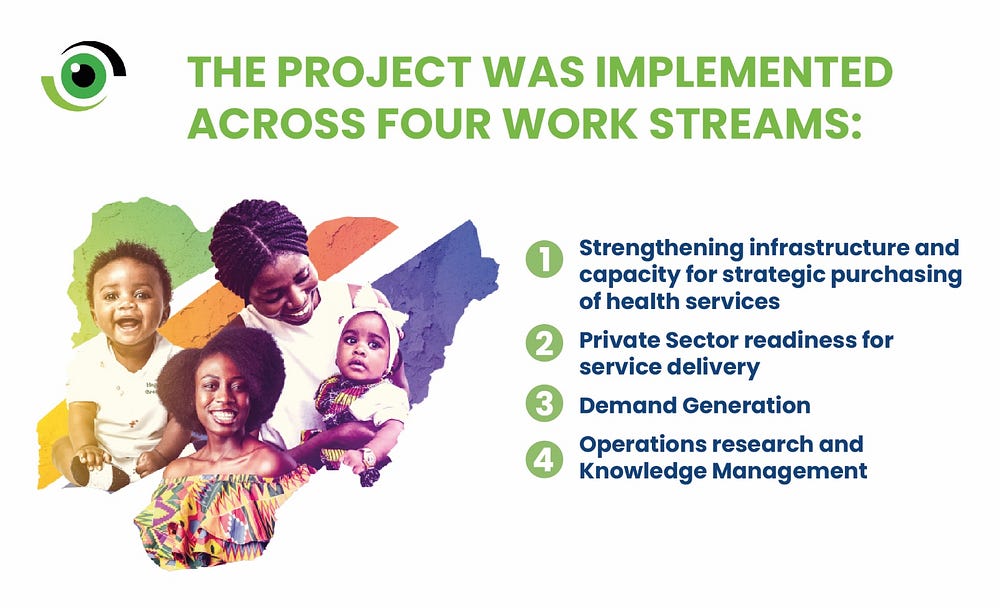
The work streams worked together to ensure the project’s success, illustrating the importance of strategic planning, collaboration, and innovation in achieving project goals.
During the panel discussion, participants addressed strategies for integrating family planning and maternity, neonatal, and child health services into benefit packages, as well as the impact on service delivery and community health outcomes. This information exchange by panellists further underscored the importance of innovative approaches to improved healthcare services and health outcomes.
Olumide Okunola, Senior Health Specialist of World Bank Group, stated that “the Sector-Wide Approach driven by the signing of the Health Sector Compact represents a strong commitment to ensuring public health facilities in Nigeria are functional to make healthcare more accessible”.
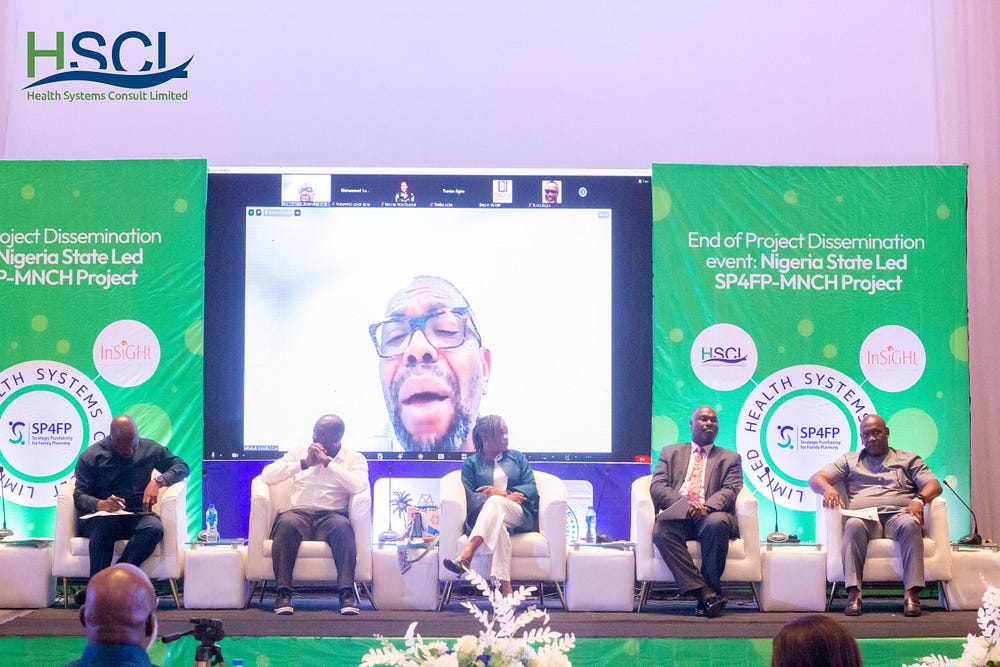
Key milestones of the SP4FP-MNCH project
A multifaceted approach was adopted to address the barriers to healthcare access. From policy advocacy to infrastructure enhancements, each workstream played a pivotal role in advancing the overarching goal of enhancing healthcare access and quality.
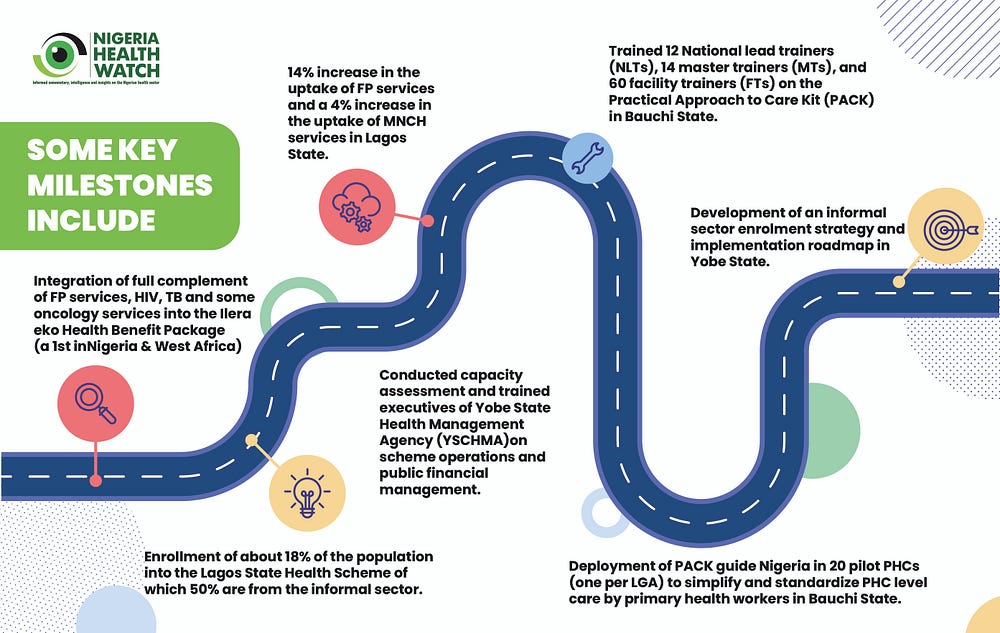
A lot still needs to be done.
While the closeout event gave an opportunity to celebrate the SP4FP-MNCH project’s accomplishments, it is important to acknowledge that success brings new challenges. The project has undoubtedly made significant progress in improving healthcare delivery and access, but it is critical to ensure that these accomplishments serve as long-term foundations on which future endeavours can be built. This requires constant commitment and investment.
The mobilisation of resources for sustainable health financing has been critical the project’s success. It has enabled the implementation of innovative approaches to healthcare delivery and increased access to essential services for everybody, regardless of socio-economic status. Reflecting on the project’s accomplishments, it is important to recognise the critical role sustainable financing plays in ensuring the continued success of healthcare interventions.
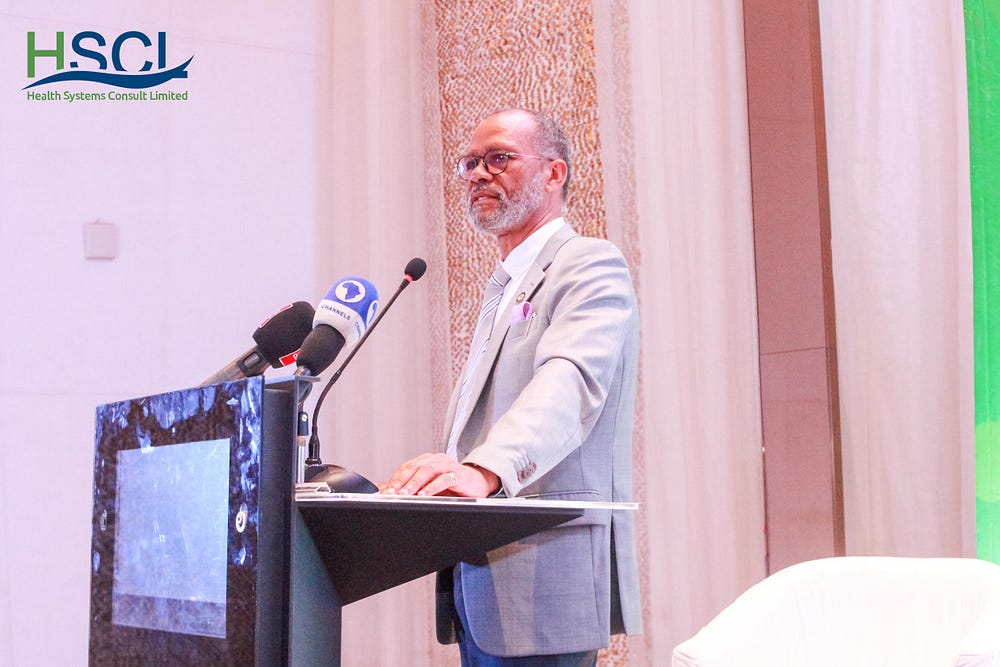
The integration of family planning and maternal, neonatal, and child health services at the national and subnational levels is critical to promoting a healthy future for our communities. This integration can be facilitated by ensuring that the national minimum package of the health plan includes family planning and MNCH services. Our job in government is to continue to stimulate economic growth for citizens. We want to reduce the number of women and children suffering from inadequate nutrition and that is exactly what this project has done for us — Prof Akin Abayomi, Lagos State Commissioner for Health during his goodwill message.
It is clear that the Nigerian health system would benefit from a more holistic inclusion of family planning services into basic health delivery. However, by actively involving family planning providers in discussions and reform efforts within these programmes, states can improve access to comprehensive healthcare services that address the diverse needs of individuals and families, resulting in better health outcomes and community well-being.


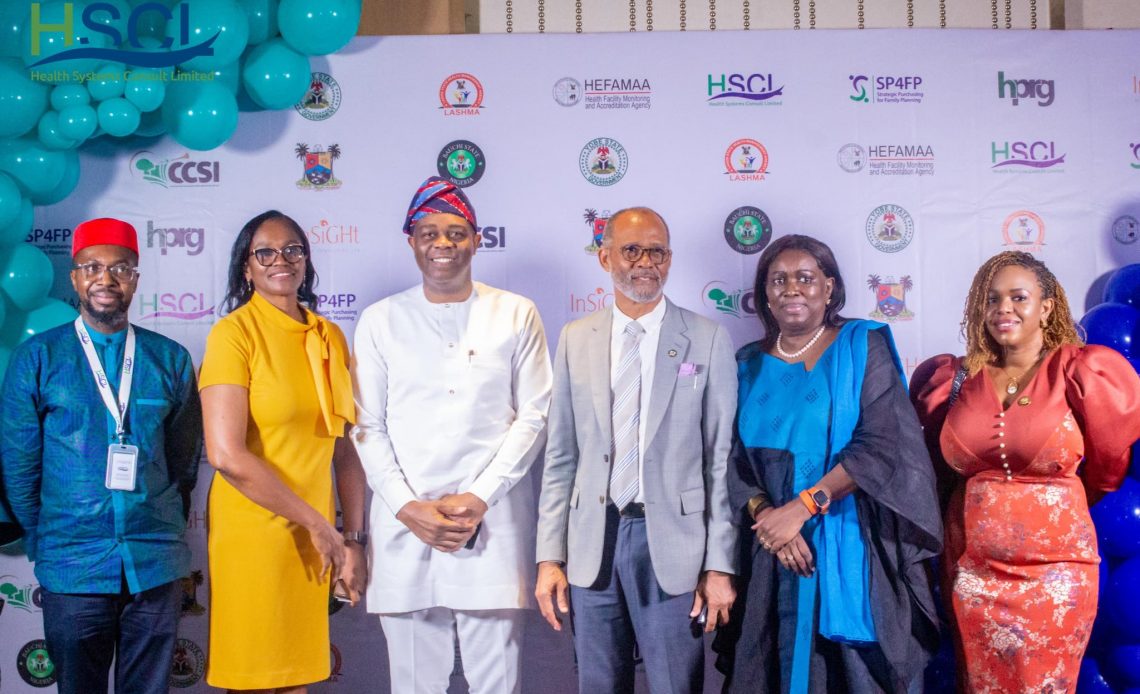

Thank you for this piece. Are the data quoted here state-wide data (for Lagos State) or are these from specific health facilities? If the latter, can I get a list of these facilities? I manage an adolescent FP program on behalf of USAID in Lagos state and adolescents and youth still struggle to access services especially due to cost and lack of commodities.
How aware is the populace that FP is in the benefit package of HIS in Lagos State?